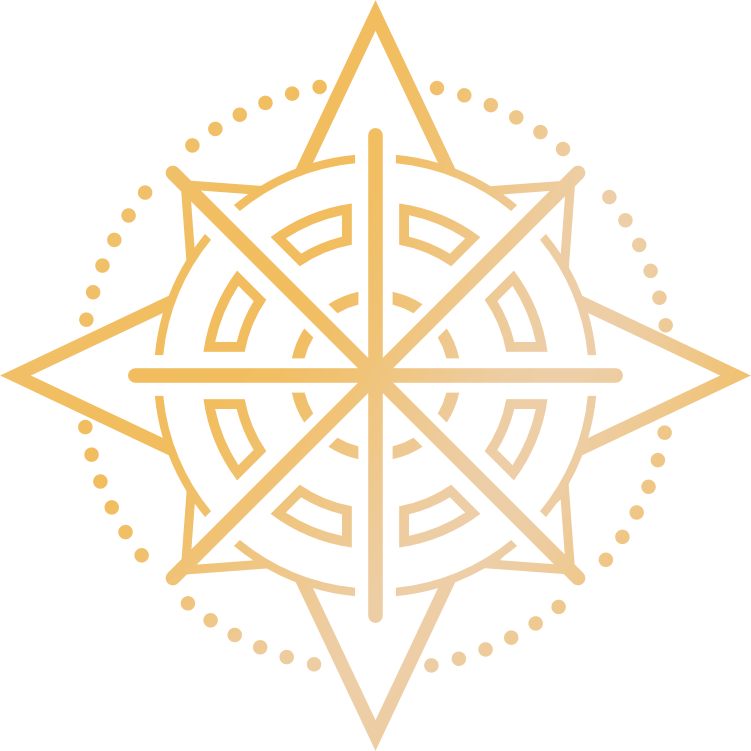Four of Pentacles
The Four of Pentacles is one of those tarot cards that often stirs something deep inside us. At first glance, the traditional image is straightforward—a figure clutching coins tightly, feet planted firmly on the ground, as if afraid to let anything go. But, as with much in life, there’s more here than meets the eye.
Context and Symbolism of the Four of Pentacles
Before diving into the meanings, let’s set the stage. The Four of Pentacles is part of the Pentacles suit, which is associated with the material world: money, security, work, and stability. The number four itself often represents structure, boundaries, and foundations. When you see this card, it’s inviting you to reflect on your relationship with resources—both external (money, possessions) and internal (your sense of worth and security).
“What are you holding onto so tightly, and why?”
In most classic decks, the character’s body language says it all: arms crossed, coins underfoot, a stubborn grip. It’s a card about control, boundaries, and the complex emotions around letting go—or not.
Main Meanings of the Four of Pentacles
Upright Interpretation
Upright, the Four of Pentacles is commonly linked to:
- Holding on to resources—perhaps money, possessions, or even old habits.
- Desire for security—wanting to feel safe and stable, sometimes at any cost.
- Boundaries and self-protection—putting up walls to safeguard what matters most to you.
- Conservatism and caution—preferring the known over the unknown, resisting change.
This card isn’t just about money, though. It can also be about emotional or psychological “clutching”—not wanting to open up, holding grudges, or being afraid to trust.
Reversed Interpretation
When the Four of Pentacles is reversed, its energy shifts:
- Release—letting go of what no longer serves you, whether it’s a belief, a habit, or a material possession.
- Vulnerability—lowering your guard, risking openness, or sharing more of yourself.
- Instability or insecurity—sometimes, the card reversed can reflect fear of loss or actual instability, like financial worries or feeling emotionally unanchored.
- Generosity—being more willing to give, share, or trust.
Reversed, the Four of Pentacles often asks: Are you ready to loosen your grip and allow change?
Psychological and Therapeutic Perspectives
The Need for Control
At its core, the Four of Pentacles is about control. Psychologically, holding on tightly can be a response to anxiety or fear—especially fear of loss or change. In therapy, we often see this pattern in people who have experienced unpredictability or instability in the past. Clinging to what’s familiar—money, routines, even relationships—can feel like a way to create safety.
“It’s okay to want to feel safe. But what are you sacrificing in order to maintain that sense of control?”
This card invites gentle self-inquiry. Are you shutting out growth, joy, or connection in your quest for security? Or are your boundaries healthy, giving you a sense of self-respect and stability?
Scarcity Mindset vs. Abundance Mindset
Another layer relates to mindset. The Four of Pentacles can signal a “scarcity mindset”—the belief that there’s not enough (love, money, opportunity) to go around. This way of thinking often leads to anxiety, defensiveness, and reluctance to share or take risks.
But shifting toward an “abundance mindset”—trusting that you can handle change and that life offers enough—can be deeply liberating. This transformation is less about having more and more about trusting yourself and your ability to adapt.
Applying the Four of Pentacles in Daily Life
Self-Reflection Questions
- What am I currently holding onto tightly, and why?
- Are my boundaries healthy, or are they shutting out opportunities and support?
- What fears might be driving my need for control?
- Where could I invite more openness or generosity in my life?
Practical Steps and Exercises
1. Name Your Fears
Take a few minutes to write down what you’re afraid of losing. Is it status, money, routine, or something less tangible, like approval or love? Naming your fears is the first step toward understanding them.
2. Experiment with Letting Go
Choose something small to release—a task you usually micromanage, an object you no longer need, or a minor grudge. Notice how your body feels. Are you tense, relieved, anxious? Use this as data, not judgment.
3. Practice Generosity
Find a way to give, even if it feels a little uncomfortable. This doesn’t have to be money—it could be time, attention, or a compliment. Generosity can help shift you from scarcity to abundance thinking.
4. Set Flexible Boundaries
Boundaries are healthy, but rigidity can become a prison. Reflect on where your boundaries can be a bit more flexible. Is there a conversation you could open up to, or a new experience you could try?
5. Mindfulness for Security
Try a short mindfulness meditation when you notice yourself clinging or worrying. Bring awareness to your breath, and gently remind yourself: “I am safe in this moment.” This practice can help calm the nervous system and widen your window of tolerance for uncertainty.
Using the Four of Pentacles for Personal Growth
The Four of Pentacles isn’t telling you to throw caution to the wind or abandon what keeps you safe. Instead, it asks you to balance security with openness. Real growth often means learning when to hold on and when to let go.
“Growth is not about having more—it’s about becoming more.”
Whether upright or reversed, the Four of Pentacles invites you to check in with your values and fears. Are you making choices from a place of love and confidence, or from anxiety and need for control?
In the Workplace and Relationships
At work, this card can show up as fear of delegating, micromanaging, or reluctance to invest in new ideas. In relationships, it might mean emotional guardedness, possessiveness, or difficulty expressing needs.
Ask yourself:
- Where am I resisting necessary change?
- Is my need for control keeping me from connecting or collaborating?
- What would happen if I trusted a little more?
Actions for Growth
- Seek feedback from someone you trust about areas where you might be holding back.
- Celebrate small acts of openness or flexibility, no matter how minor they seem.
- Remind yourself that asking for help is a sign of strength, not weakness.
Remember, the Four of Pentacles is not about right or wrong—it’s about awareness. Use it as a gentle prompt to notice where you’re gripping too tightly, and where you might benefit from a little more ease.
Tarot is not fortune-telling — it’s a mirror for reflection and growth.

